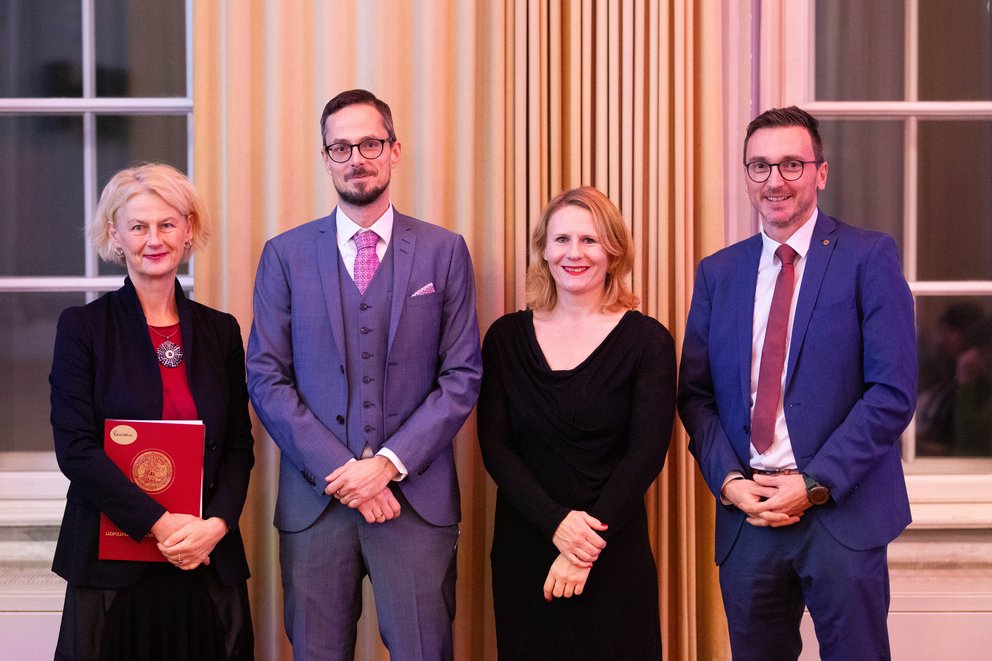Research in focus
European Research Project for geriatric care/long-term care: assoc. Prof. Dr. Bernhard Weicht, Department of Sociology


Over the next three years, the Department of Sociology at the University of Innsbruck will be researching existing and innovative strategies in long-term care and the specific contextual factors that shape the national systems. The aim is to identify national characteristics and formulate concrete proposals for improving long-term care, both for people in need of care and for carers.
Increasing life expectancy goes hand in hand with an ageing society that will be dependent on care and nursing, with a constant (or even decreasing) supply of nursing staff. The COVID19 pandemic has clearly shown that there is an urgent need for action here.
As part of the EU Horizon project "LeTs Care - Learning from long-term care practices for the european care strategy", researchers from the University of Innsbruck are investigating the current conditions and strategies of long-term care in Austria in order to compare them with researchers from Italy, Portugal, Spain, the Netherlands, Lithuania and Denmark. In doing so, it is important to take into account the political and cultural characteristics of the individual countries. Denmark and the Netherlands, for example, are characterized by a strongly state-supported care policy, while in other countries the main responsibility for care falls to families. In order to take country-specific differences into account and to enable a meaningful comparison of the different care arrangements, national and local core characteristics are jointly developed and specific case studies are carried out in the individual countries. This will be achieved by analysing existing documents (political strategy papers, research reports and concepts) and conducting interviews with experts from various fields (politics, care organizations, etc.).
The focus is also on a detailed examination of specific strategies for restructuring formal services, using innovative technologies, integrating home care and improving care work. The underlying question is which models work or do not work and for what reasons. In addition to comparing countries, the EU project also aims to develop a new model for policy learning. In addition to "best practice" recommendations, ideas are to be discussed in workshops with relevant stakeholders and political decision-makers and new "meaningful" instruments are to be developed that can be applied at European level as part of the EU Care Strategy.
The project team at the Institute of Sociology, headed by Assoc. Prof. Dr. Bernhard Weicht, started work last month and will be investigating Austrian long-term care strategies over the next four years and comparing them with other European countries.
Link to the project: https://ec.europa.eu/info/funding-tenders/opportunities/portal/screen/how-to-participate/org-details/944548268/project/101132701/program/43108390/details
Contact: Bernhard Weicht & Lisa Waldenburger
Archive of previous posts
Inaugural Lectures: Prof. Uta Rußmann and Prof. Martin Senn

From left to right: Rector Veronika Sexl, Professor Martin Senn, Professor Uta Rußmann and Dean Franz Eder
On the 13th of December 2023, Prof. Uta Rußmann, Department of Media, Society and Communication, and Prof. Martin Senn, Department of Political Science, held their inaugural lectures at the Faculty of Social and Political Sciences. In the venerable Kaiser-Leopold Saal and in the presence of Rector Prof. Veronika Sexl, the two newly appointed professors presented their current research and plans for future projects.
Prof. Uta Rußmann was appointed to a §98 professorship with the title "Media and Communication Studies with a focus on Democracy" at the University of Innsbruck in March 2022.
Prof. Martin Senn was appointed to a §99(4) professorship at the University of Innsbruck in December 2022 with the title "Political Science with a focus on International Regulatory Policy".
The titles of the two inaugural lectures gave rise to expectations of exciting insights into the research and teaching of the two newly appointed professors:
Social media or beer tent? Living democracy.
Univ.-Prof.in Dr.in Uta Rußmann
Department of Media, Society and Communication, University of Innsbruck
and
(Dis)order in world politics
Prof. Dr. Martin Senn
Department of Political Science, University of Innsbruck
Afterwards, more than 130 members of the audience had the opportunity to chat informally with the two professors.
FWF-Projekt: Affluence and the gender gap in STEM study choices

Surprisingly, female underrepresentation in science, technology, engineering, and mathematics (STEM) majors is larger in more affluent societies. This Gender-Equality Paradox (GEP) is theoretically explained by individuals' greater economic opportunities for gendered self-expression. Yet, what the effect is of individual-level household affluence on men's and women's STEM study preferences and choices is largely unknown, let alone whether household affluence accounts for GEP. In addition, the literature did not investigate mediators of household affluence effects and variation in these effects across contexts.
We aim to fill the research gaps and address four research questions: (a) What is the effect of household affluence on the gender gap in STEM study preferences and choices?; (b) To what extent can household affluence account for the positive effect of societal affluence on this gender gap?; (c) How can we account for household affluence effects on the gender gap in STEM study preferences and choices?; (d) To what extent is the effect of household affluence on men's and women's STEM study preferences and choices moderated by contextual factors such as societal affluence, welfare provision, and socio-economic inequality? We test two contrasting expectations: first, household affluence increases the gender gap in STEM study preferences and choices through more gendered life goal preferences; second, household affluence reduces this gap due to more gender-egalitarian attitudes and ability patterns. We expect that household affluence has a smaller effect on (gendered) STEM study preferences and choices in more affluent and welfare-supportive settings. We answer the research questions with a series of quantitative studies using large-scale cross-national comparative data as well as longitudinal data from Germany.
Primary researchers involved
Wilfred Uunk (Principal investigator)
Founding
FWF, Principal Investigator Project (“Einzelprojekt”), P36789
Contact
UUNK, Wilfred, Univ.-Prof. Dr.
